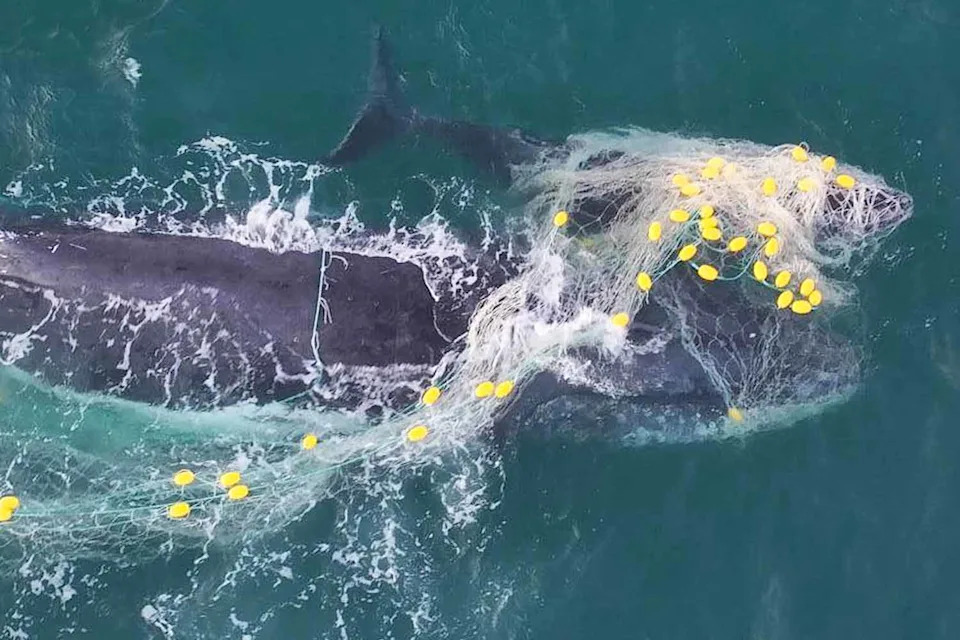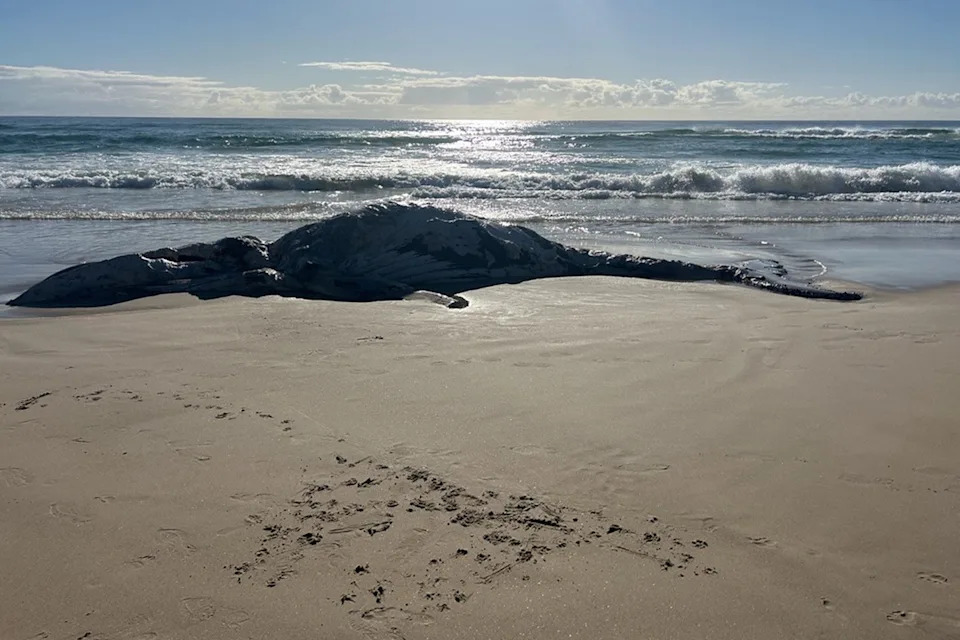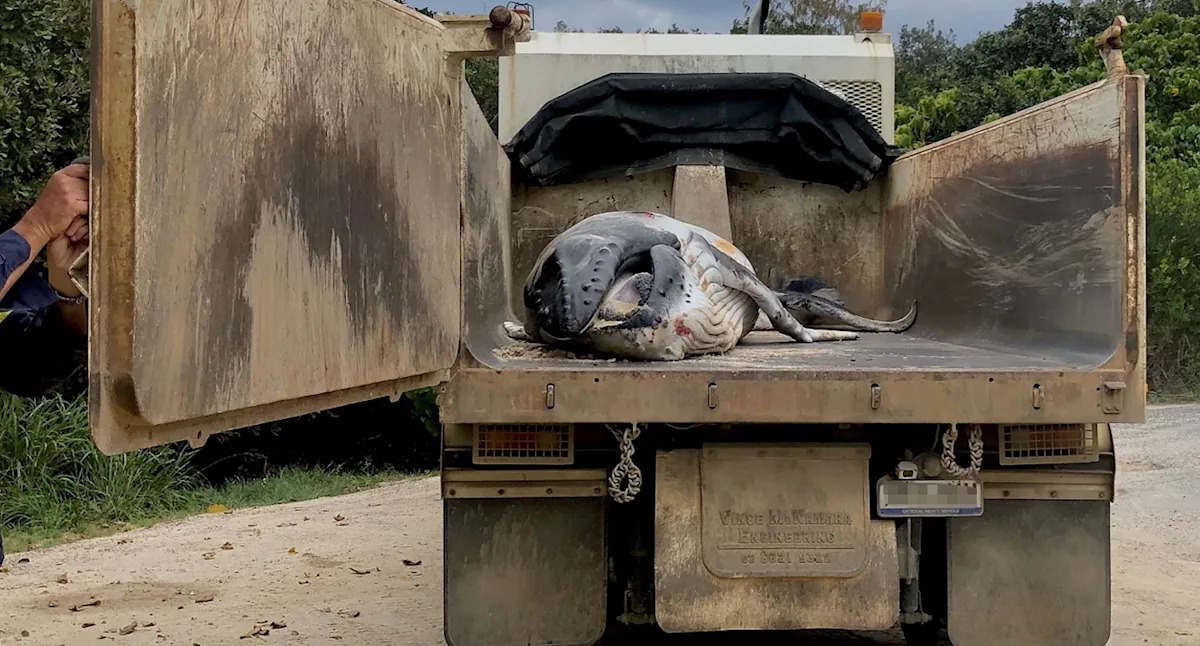The upsetting reality of Australia’s annual humpback whale migration season has been laid bare after a calf became stranded and died at a popular east coast beach, attracting a massive outcry among saddened locals.
Coastal community members mourned the death of the young whale online this week after it lost its life on Saturday at Cabarita Beach, in the New South Wales Tweed Shire.
Though it’s been documented that humpback whale populations are increasing, with a record 40,000 passing through east coast waters this season, recent events such as shark net entanglements and collisions with boats have heightened emotions.
“Such a sad end to a new life — hopefully there aren’t any more this season. Fly free little one,” a NSW man wrote on social media beside an image of the baby whale on the back of the truck. The response attracted a flurry of responses, in excess of 1,000 people from across the community.
Was the baby whale the same one that was entangled at Noosa?
Theories were put forward that the little animal might have been the same individual that became severely entangled in shark nets at Noosa earlier this month, a sobering incident that made national headlines. With whales swimming up the coast to give birth in warmer waters, then travelling back down to the Antarctic with their young, some suggested it was plausible.
But after being questioned by Yahoo News Australia, a spokesperson for the NSW National Parks and Wildlife Service (NPWS) said there’s no conclusive way to tell.
“When the whale calf was stranded on Cabarita Beach late Friday afternoon, NSW National Parks and Wildlife Service, ORRCA and Sea World Foundation quickly mobilised staff and volunteers to assist,” the spokesperson said.
“Unfortunately, newborn calves are navigating many obstacles for the first time as they migrate south and can strand for a number of reasons. The factors that led to this stranding event are unknown.”

The humpback whale calf was so tangled in the net it looked like a ‘mummy’. Source: Instagram/GeoffAquino
The devastating impact of shark nets on marine life
Animals that become entangled in nets can be left with skin abrasions and superficial injuries, however, similar injuries can also be sustained during stranding events. Unfortunately, the department explained, there is no definitive way to say if this animal was the same one that was previously entangled.
Though similar events have occurred in recent times.
Authorities warned beachgoers just last week to stay away from a humpback carcass found at Kingscliff Beach between Byron Bay and the Gold Coast, warning it was a biohazard.
After examining markings on its tail, Griffith University whale expert Dr Olaf Meynecke concluded the animal was almost certainly the same one that was freed by rescuers just a week prior, after it became tangled in fishing gear.

A humpback whale was reported dead on Kingscliff Beach last week, days after it was freed from fishing gear. Source: Tweed Shire Council
“The whale was extremely sick and looked like it was going to die,” he told Yahoo News earlier. Only around 10 or 20 per cent of whales that become entangled are successfully assisted by rescuers. Some free themselves, and many simply die. Increasingly, humpbacks are documented with scars caused by ropes from fishing gear or shark nets, but it’s unknown how many in total survive the ordeal.
Many of the commercial fishing ropes used today are made of cheap plastic, which cuts into the skin, inflicting injuries too severe to heal. Other whales lose too much energy from dragging gear behind them. Meynecke estimates the whale at Kingscliff was tangled for months, and was abandoned by other whales before human help finally arrived.
“They do call for assistance when they are in danger or in distress, and other whales will come and try to assist, even lift them up. But there comes a certain point where they just give up, and then they generally just die alone,” he said.
In encouraging news, researchers estimate humpback whale numbers are rising by about 10 per cent annually, a recovery largely credited to the end of commercial whaling. But with more whales migrating each year, conservationists remain focused on reducing risks from shark nets, fishing gear entanglements and vessel strikes, to ensure the population’s long-term survival.
Do you have a story tip? Email: newsroomau@yahoonews.com.
You can also follow us on Facebook, Instagram, TikTok, Twitter and YouTube.


